Introduction
Raising an 18-year-old can be challenging, especially when they seem to struggle with taking responsibility—a concern many parents face today. Responsibility is not just another life skill; it’s a foundational trait that shapes a young adult’s future, influencing their ability to succeed in personal and professional spheres. As your child transitions into adulthood, understanding the importance of responsibility becomes crucial. This post will delve into the reasons behind this common issue, the signs to watch out for, and practical strategies to guide your teenager toward becoming a more responsible adult. We’ll also touch on when it might be time to seek professional help, ensuring you have a comprehensive approach to navigating this critical phase of your child’s development.
Understanding the Behavior
The Psychological and Emotional Development of an 18-Year-Old
At 18, your child is on the cusp of adulthood, navigating a complex period of psychological and emotional development. This stage is marked by a heightened desire for independence coupled with the fear of the responsibilities that come with it. The brain continues to mature, particularly the prefrontal cortex, which governs decision-making, impulse control, and risk assessment. However, this part of the brain isn’t fully developed until the mid-20s, often leading to a mismatch between the desire for autonomy and the ability to manage it effectively.
Common Reasons Why an 18-Year-Old May Avoid Responsibility
- Fear of Failure: The pressure to succeed—academically, socially, or professionally—can be overwhelming. Many 18-year-olds avoid responsibility to protect themselves from the fear of failing or disappointing others.
- Lack of Motivation: Without clear goals or a sense of purpose, your teenager might struggle to find the motivation to take on responsibilities. This can be exacerbated by feelings of uncertainty about the future.
- Dependency on Parents: Years of parental support and guidance can sometimes lead to an over-reliance on parents, making it difficult for the teenager to step up and take responsibility on their own.
The Impact of External Factors on Responsibility
- Peer Pressure: The influence of friends and peers can be a significant factor. If their social circle values immediate gratification over long-term responsibility, your teenager may mirror these behaviors.
- Social Media: The curated perfection often portrayed on social media can create unrealistic standards, leading to procrastination or avoidance when your teenager feels they can’t measure up.
- Mental Health Issues: Anxiety, depression, or other mental health concerns can severely impact an 18-year-old’s ability to handle responsibilities. These issues can lead to avoidance behaviors as a coping mechanism.
By understanding these aspects of your teenager’s development and the external factors at play, you can better address their reluctance to take responsibility and help them navigate this challenging period.

Signs Your 18-Year-Old Is Avoiding Responsibility
As parents, it’s often difficult to recognize when typical teenage behavior crosses the line into irresponsibility. Understanding the signs that your 18-year-old is avoiding responsibility is crucial for addressing the issue early on. This section will explore key indicators such as a lack of accountability, procrastination, dependency on parents, and irresponsible behavior, providing you with a comprehensive overview to better identify and manage these behaviors.
Lack of Accountability
One of the most telling signs that your teenager is avoiding responsibility is their inability or unwillingness to acknowledge mistakes. Instead of owning up to errors, they might deflect blame onto others, whether it’s friends, teachers, or even you. This behavior not only hinders their personal growth but also damages relationships and prevents them from learning important life lessons. By consistently failing to take responsibility for their actions, your teen may be developing a pattern that could negatively impact their future relationships and professional life.
Procrastination and Delaying Important Tasks
Procrastination is a common issue among teenagers, but when it becomes a chronic habit, it can be a sign of deeper avoidance behavior. If your 18-year-old is constantly delaying important tasks—whether it’s completing school assignments, applying for jobs, or even simple household chores—it could indicate a reluctance to face responsibilities. Procrastination often stems from fear of failure or a lack of confidence, and addressing this behavior is crucial for helping your teen build the resilience and work ethic needed for adulthood.
Dependency on Parents for Decisions and Basic Tasks
Another clear sign that your teenager is avoiding responsibility is their continued reliance on you for decisions and basic tasks. While it’s natural for parents to want to support their children, an 18-year-old should be gradually taking on more independence. If your teen is constantly seeking your input on decisions they should be making on their own, or relying on you to manage basic responsibilities like scheduling appointments or managing their finances, it may be time to encourage more self-sufficiency. Dependency at this stage can hinder their ability to transition smoothly into adulthood.
Irresponsible Behavior in Daily Life
Irresponsibility can manifest in various aspects of daily life, from irregular work or study habits to neglecting chores and personal responsibilities. If your 18-year-old is showing signs of inconsistent behavior, such as skipping classes, failing to meet deadlines, or neglecting their personal space and hygiene, these could be red flags that they are avoiding responsibility. Addressing these behaviors early is essential, as they can escalate into larger issues that impact their ability to succeed in both personal and professional realms.
Recognizing these signs is the first step in guiding your teenager towards greater responsibility. By understanding and addressing the root causes of these behaviors, you can help them develop the accountability and independence they need to thrive as adults.
Consequences of Not Taking Responsibility
Failing to take responsibility during the critical transition to adulthood can have far-reaching effects. In this section, we’ll explore the potential consequences, including the impact on future prospects, emotional and mental health challenges, and the strain on family dynamics. Understanding these consequences will highlight the importance of addressing irresponsible behavior early on, ensuring your teenager is prepared for the challenges of adult life.
Impact on Future Education, Career, and Relationships
Avoiding responsibility at 18 can have a profound impact on your teenager’s future, particularly in terms of their education, career, and relationships. In the academic realm, consistent irresponsibility—such as failing to meet deadlines or neglecting studies—can lead to poor grades and missed opportunities for higher education. This, in turn, can limit career prospects, as employers value reliability and accountability in their workforce. Moreover, in personal relationships, a lack of responsibility can erode trust and respect, leading to conflicts and potentially unstable or unhealthy relationships. If these patterns continue into adulthood, they may struggle to establish a successful career or maintain meaningful personal connections.
Emotional and Mental Health Implications
The emotional and mental health consequences of avoiding responsibility are often underestimated but can be significant. Irresponsibility can lead to increased stress, particularly as your teenager faces the mounting pressures of adulthood. Over time, this stress can contribute to anxiety or even depression, as they feel overwhelmed by the responsibilities they’re avoiding. Additionally, a lack of responsibility can result in low self-esteem. When teenagers continually avoid challenges or fail to meet expectations, they may begin to see themselves as incapable or inadequate, further reinforcing a cycle of avoidance. Addressing these issues early can help your teenager develop a healthier self-image and better coping mechanisms for life’s challenges.
Strain on Family Dynamics and Household Harmony
Within the family, a teenager’s avoidance of responsibility can create significant strain on relationships and disrupt household harmony. When an 18-year-old fails to contribute to the family’s daily functioning—whether by neglecting chores, failing to manage their own schedule, or relying too heavily on parents—resentment can build among other family members. This strain can lead to frequent conflicts, diminished respect, and a breakdown in communication. Over time, the household may become a source of tension rather than support, further complicating your teenager’s transition to adulthood. Encouraging responsibility within the family unit is essential for maintaining a healthy and supportive home environment.
By understanding the potential consequences of not taking responsibility, you can better appreciate the importance of addressing this behavior with your teenager. These discussions will not only help them understand the long-term impact of their actions but also guide them toward making more responsible choices as they step into adulthood.

How to Encourage Responsibility in an 18-Year-Old
Guiding an 18-year-old toward greater responsibility requires a thoughtful approach that balances support with clear expectations. This section explores practical strategies for encouraging responsibility, including setting expectations, fostering gradual independence, using positive reinforcement, and establishing consequences for irresponsibility. These methods can help your teenager develop the skills and mindset needed for a successful transition into adulthood.
Setting Clear Expectations and Communicating Consequences
One of the most effective ways to encourage responsibility is by setting clear expectations. Start by having an open and honest conversation with your teenager about what responsibilities they are expected to manage, whether it’s academic commitments, household chores, or personal goals. Make sure to communicate not only what is expected but also the consequences of not meeting those expectations. Clear communication helps prevent misunderstandings and ensures your teenager understands the importance of their responsibilities. It also creates a framework for accountability, making it easier to address any lapses in responsibility in a constructive manner.
Encouraging Gradual Independence
Promoting responsibility also involves encouraging gradual independence. Rather than overwhelming your teenager with too many responsibilities at once, start by gradually increasing their level of autonomy. For example, you might begin by allowing them to manage their own schedule or budget, offering guidance when needed but stepping back to let them make their own decisions. This approach helps build their confidence and decision-making skills, fostering a sense of ownership over their responsibilities. As they demonstrate their ability to handle these tasks, gradually introduce more complex responsibilities, reinforcing their progress with support and encouragement.
Using Positive Reinforcement to Reward Responsible Behavior
Positive reinforcement is a powerful tool for encouraging responsible behavior. When your teenager meets expectations or takes initiative, acknowledge their efforts with praise or tangible rewards, such as privileges or additional freedoms. Positive reinforcement not only reinforces responsible behavior but also boosts your teenager’s self-esteem and motivation. It’s important to be consistent with this approach, ensuring that responsible actions are regularly recognized and rewarded. Over time, this creates a positive feedback loop, where your teenager becomes more motivated to take responsibility in order to receive positive reinforcement.
Establishing and Enforcing Consequences for Irresponsibility
While positive reinforcement is important, it’s equally crucial to establish and enforce consequences for irresponsibility. If your teenager fails to meet their responsibilities, there should be clear, consistent consequences that are proportionate to the behavior. For example, if they neglect household chores, a logical consequence might be the temporary loss of certain privileges, such as screen time or social outings. The key is to enforce these consequences consistently, making sure your teenager understands that irresponsibility has tangible repercussions. This approach helps instill a sense of accountability and reinforces the importance of fulfilling their responsibilities.
By implementing these strategies, you can create an environment that encourages your teenager to take responsibility for their actions. Clear expectations, gradual independence, positive reinforcement, and consistent consequences work together to build the skills and attitudes necessary for your teenager to navigate adulthood successfully.
Practical Tips for Parents
As your 18-year-old navigates the complexities of emerging adulthood, your role as a parent shifts from direct oversight to supportive guidance. In this section, we’ll discuss practical tips that can help you foster responsibility in your teenager, including leading by example, providing guidance without control, encouraging problem-solving skills, and maintaining open communication. These strategies will not only support your child’s growth but also strengthen your relationship during this pivotal time.
Lead by Example: Demonstrating Responsible Behavior
One of the most effective ways to instill responsibility in your teenager is by leading by example. Your actions often speak louder than words, and teenagers are keen observers of their parents’ behavior. Demonstrate responsibility in your own life by managing your commitments effectively, honoring your obligations, and handling challenges with resilience. When your teenager sees you taking responsibility seriously, they’re more likely to mirror those behaviors. Whether it’s paying bills on time, following through on promises, or maintaining a balanced work-life routine, your example sets the tone for what responsible adulthood looks like.
Provide Guidance Without Micromanaging
As your teenager moves towards greater independence, it’s important to offer guidance without slipping into micromanagement. While they still need your advice and support, they also need the space to make their own decisions and learn from their mistakes. Instead of dictating every step they should take, provide general direction and let them navigate the details. For example, if they’re struggling with a school project, offer to discuss possible approaches rather than telling them exactly what to do. This balance allows them to develop their own problem-solving skills and fosters a sense of autonomy, which is crucial for their growth.
Encourage Problem-Solving Skills
Encouraging your teenager to develop strong problem-solving skills is key to fostering responsibility. Life is full of challenges, and learning to tackle them independently is a critical part of becoming a responsible adult. When your teenager encounters a problem, resist the urge to solve it for them. Instead, guide them through the process of identifying the issue, brainstorming possible solutions, and evaluating the outcomes. Ask open-ended questions like, “What do you think are your options?” or “How do you plan to handle this?” This approach not only empowers them to find solutions but also builds their confidence in handling responsibilities on their own.
Maintain Open Communication to Discuss Struggles and Successes
Keeping the lines of communication open is essential for supporting your teenager’s journey towards responsibility. Regular, honest conversations allow you to stay connected with their experiences, whether they’re facing challenges or celebrating successes. Make it a habit to check in with your teenager, asking about their day, their feelings, and any difficulties they might be encountering. Encourage them to share their successes as well, no matter how small, to reinforce their progress. By maintaining open communication, you create a safe space for your teenager to express themselves, seek advice, and feel supported as they take on more responsibilities.
Implementing these practical tips can significantly enhance your ability to guide your 18-year-old towards greater responsibility. By leading by example, offering guidance without control, fostering problem-solving skills, and maintaining open communication, you’ll help your teenager build the foundation they need for a successful and responsible adulthood.

When to Seek Professional Help
While many teenagers gradually learn to take responsibility with the support of their parents, there are instances where deeper issues may be at play, requiring professional intervention. In this section, we’ll explore how to recognize when it’s time to seek counseling or therapy for your teenager, and how to utilize external support systems such as mentors or educational programs. Understanding when and how to seek help is crucial for addressing underlying problems that may be hindering your teenager’s development.
Recognizing Deeper Issues That May Require Counseling or Therapy
It’s important to distinguish between typical teenage behavior and signs that indicate a need for professional help. If your 18-year-old constantly avoids responsibility despite your efforts to encourage them, there may be underlying issues such as anxiety, depression, or other mental health concerns. Recognizing the signs—such as persistent mood swings, withdrawal from social activities, or extreme stress—can be the first step in seeking the appropriate help. Additionally, if your teenager exhibits behaviors that significantly disrupt their daily life or relationships, counseling or therapy can provide them with the tools to manage these challenges. Early intervention can make a significant difference in helping your teenager develop healthier coping mechanisms and a more responsible approach to life.
Utilizing Support Systems Like Mentors and Educational Programs
In addition to professional counseling or therapy, external support systems can play a valuable role in your teenager’s development. Mentors, for instance, can offer guidance and serve as positive role models, helping your teenager navigate challenges and encouraging them to take responsibility. Whether it’s a teacher, coach, or another trusted adult, a mentor can provide a different perspective and support that complements your efforts at home. Additionally, educational programs focused on life skills, leadership, or personal development can also be beneficial. These programs often provide structured environments where your teenager can learn about responsibility in a practical, hands-on way, while also gaining confidence and self-awareness.
Knowing when to seek professional help and how to leverage external support systems is essential for addressing more complex issues that may be affecting your teenager’s ability to take responsibility. By recognizing the signs and being proactive in seeking help, you can ensure your teenager receives the support they need to thrive during this critical stage of their development.
Conclusion
In summary, guiding an 18-year-old towards responsibility involves a blend of clear expectations, gradual independence, positive reinforcement, and understanding when to seek professional help. As a parent, your patience and persistence are key in helping your teenager develop the skills they need to navigate adulthood successfully. Remember, progress takes time, and your ongoing support is crucial in fostering their growth. We invite you to share your own experiences or tips in the comments below—your insights could be invaluable to other parents facing similar challenges.
Check out our blog Typical Teenage Girl Behavior: A Guide, for more such content!
Frequently Asked Questions (FAQs)
1. What Are Common Reasons an 18-Year-Old Might Avoid Responsibility?
An 18-year-old might avoid responsibility due to several factors, including fear of failure, lack of motivation, or dependency on parents. Emotional and psychological development at this age often involves grappling with self-esteem and independence issues. Additionally, external factors such as peer pressure, social media influences, and mental health concerns can also play a role. Understanding these underlying causes can help in addressing the behavior effectively.
2. How Can I Tell If My Teenager’s Irresponsibility Is a Normal Phase or a Serious Issue?
It’s important to differentiate between typical teenage behavior and more serious issues. Signs that might indicate a serious problem include persistent avoidance of responsibilities despite support, severe mood swings, social withdrawal, or significant disruptions in their daily life. If these behaviors are consistent and impact their education, relationships, or mental health, it may be time to seek professional help to address potential underlying issues.
3. What Are Effective Strategies for Encouraging Responsibility in an 18-Year-Old?
Effective strategies include setting clear expectations and communicating consequences, encouraging gradual independence, and using positive reinforcement. Providing guidance without micromanaging allows teenagers to develop decision-making skills while building confidence. Additionally, maintaining open communication about their struggles and successes fosters a supportive environment that promotes responsibility.
4. When Should I Consider Seeking Professional Help for My Teenager?
Professional help should be considered if your teenager’s avoidance of responsibility is accompanied by significant emotional or behavioral issues, such as persistent anxiety, depression, or extreme stress. If their behavior disrupts their daily life or relationships and doesn’t improve with typical parenting strategies, counseling or therapy can provide them with the necessary tools to address these challenges effectively.
5. How Can External Support Systems Like Mentors and Educational Programs Help?
External support systems such as mentors and educational programs offer additional guidance and encouragement that complement parental efforts. Mentors can provide positive role models and practical advice, while educational programs focused on life skills and personal development can teach responsibility in a structured environment. These resources help build confidence, decision-making skills, and a sense of accountability, supporting your teenager’s transition into adulthood.
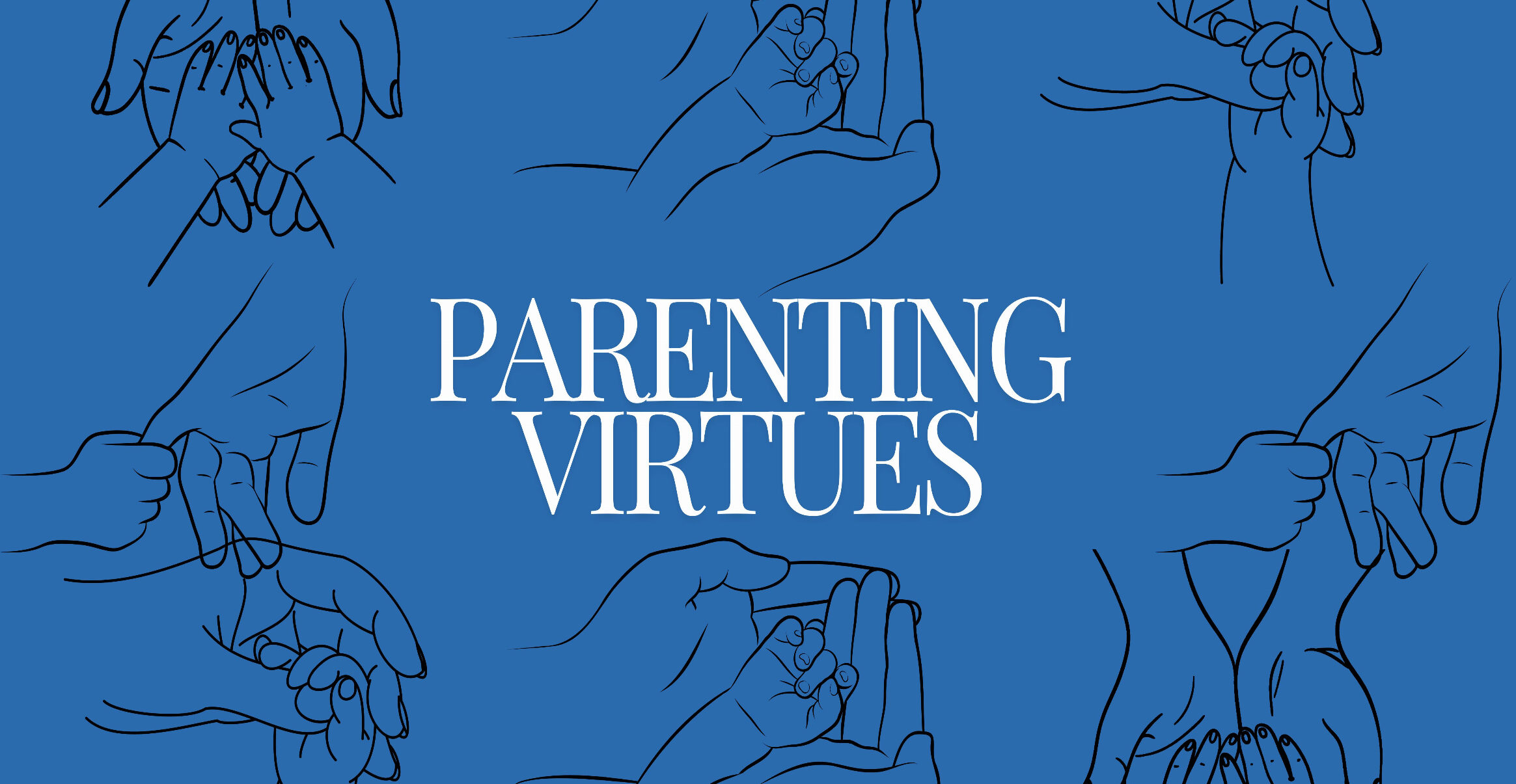
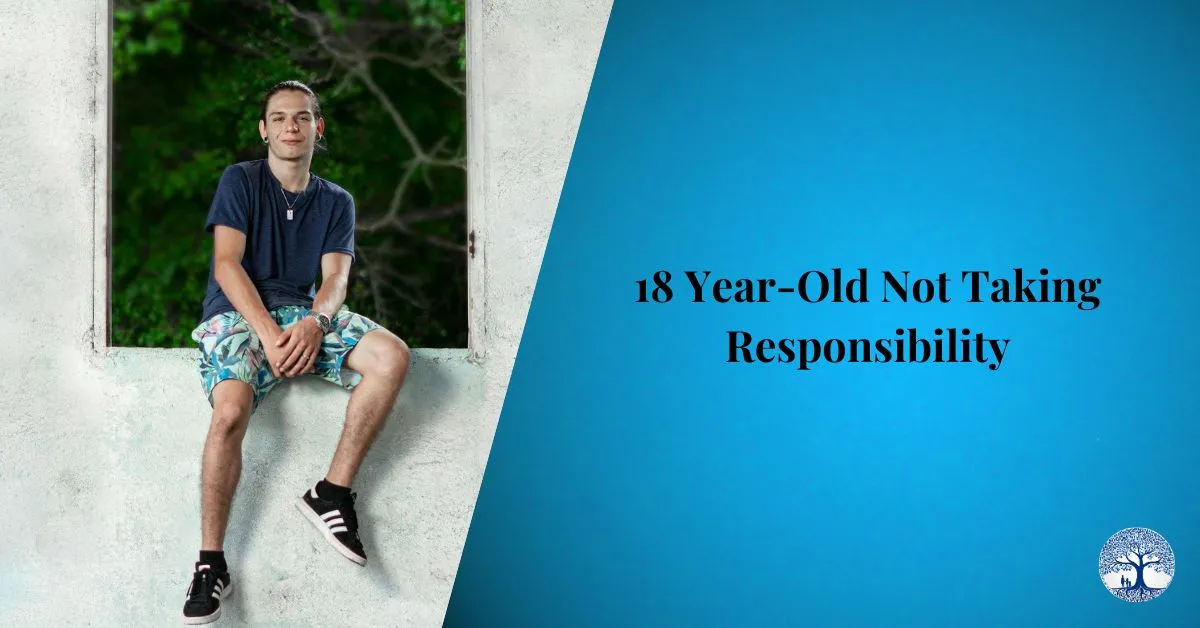
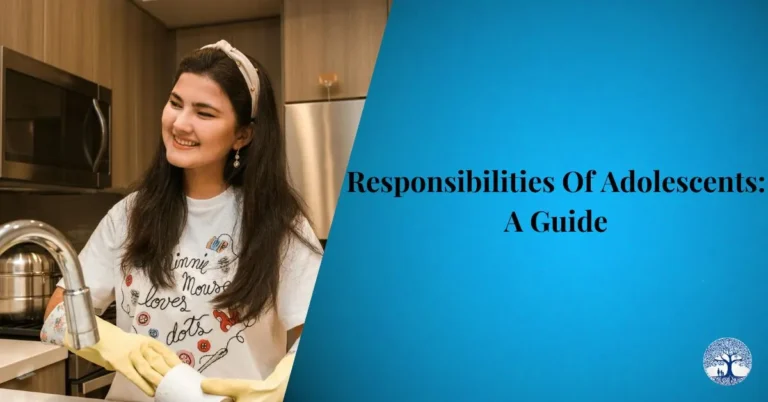
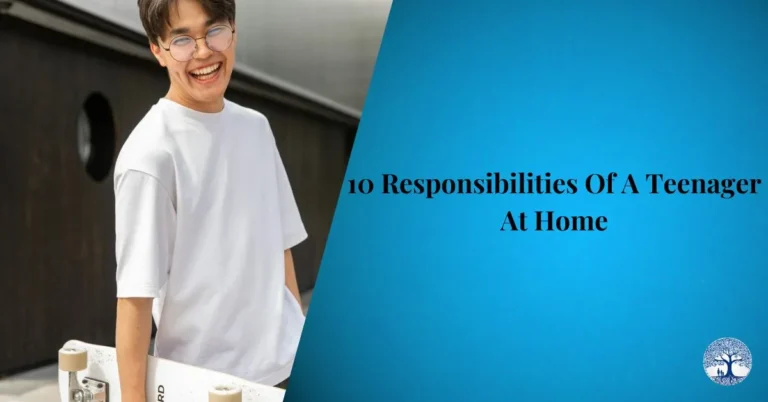
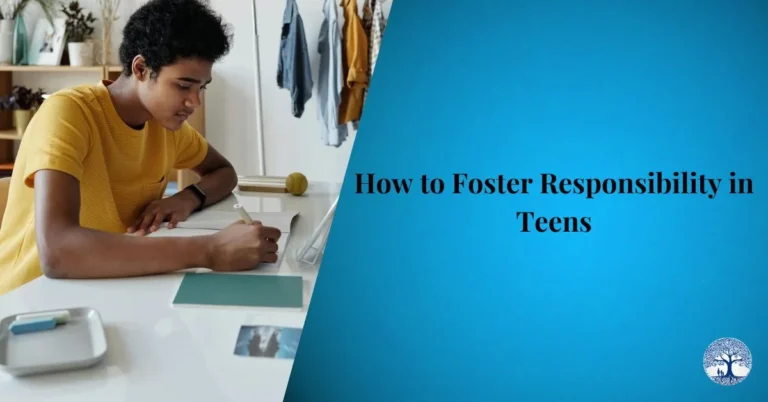
One Comment